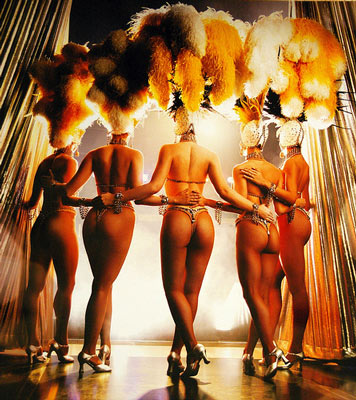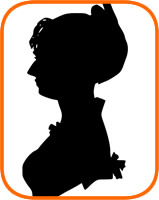Wall of Shame special bonus item: Ruth Reichl resorts to unfortunate phrasing in Saveur.
We previously have remarked that American writers tend to bungle their forays into British foodways. Ruth Reichl provides an example hot from the press.
Saveur calls its April 2012 offering the “Las Vegas Issue.” That is unfortunate enough in itself, but a number of curious propositions unrelated to the artificial city also lurk within the issue. One of them appears in the profile by Reichl of Amber Unicorn Books, a Las Vegas store that includes a selection of cookbooks. The profile itself covers two pages but after subtracting the photograph and blank space, the actual copy describing the shop covers just an eighth of that; not much literary bang for the buck.

We’re here for the books.
Despite the scanty substance, Reichl has managed to blow her coverage from the outset. She opens the profile by confiding that
“The last thing I expected to find in Las Vegas was a phrase of apples. Well, actually, the last thing I expected to find in Las Vegas was a store that had a book that had a recipe for a phrase of apples, a medieval English dessert that resembles a fruit pancake.”
Reichl does not identify the book, which may be just as well from her point of view if not her readers’, because it is most unlikely that she found any recipe for ‘phrase’ in it.
The dish itself may be described as a sort of hybrid omelet cake or perhaps a fried batter pudding. Whatever terms we use to describe the thing, it is no ‘phrase.’ The preparation has been spelled variously through the ages--it does predate the advent of standardized English--but never like that. It appears most often as fraize, fraze or froise, and sometimes as frasye or frausy.
Despite Reichl’s description, the fraize is not limited to sweet renditions; despite her implication, it is not limited to apples either. Fraizes can be savory as well as sweet; bacon appears as an ingredient more frequently than anything else in the random recipes the Editor has found. That may be a representative sample; in Alan Davidson’s glossary to the Prospect Books facsimile edition of The Art of Cookery Made Plain and Easy by Hannah Glasse, he defines ‘fraze’ as “[a] word spelled in many ways by various authors, e. g. fraize and froise. It means a kind of pancake or omelette, often containing slices of bacon.”
The fraize probably does date to the middle ages, as Reichl asserts, but enjoyed a longer run than she implies. In the entry for the term, spelt ‘froise,’ from The Food of the Western World (London 1976), Theodora FitzGibbon includes reference to one from 1575 “quoted as being a pancake with bacon on it.”
Lizzie Boyd goes back much further. She considers the technique a relative of Yorkshire Pudding and Toad in the Hole. All three dishes may originally have been cooked in the dripping pan kept under roasting meat, which originally served double duty “for frying small pieces of food.” She surmises in British Food (Woodstock, NY 1979) that
“[a]t some point it must have been discovered that the result was greatly improved if the food was coated in batter before frying to give a crisp finish. This method of cooking, mentioned in fifteenth century manuscripts, was sometimes described as a ‘froise’ or ‘fraise’ from which we get Bacon Froise.” (Boyd 34)
The practice may explain the origin of the term. According to FitzGibbon, “[i]t is thought to be onomatopoeic, and to represent the sound the food makes when dropped into deep fat.”
Both Richard Bradley, in 1736, and Mrs. Glasse in 1747, printed recipes for fraises. She equates them with fritters. Her Art of Cookery includes two recipes, using either almonds or apples, and gave Davidson his spelling of ‘frazes.’

At the tavern: We’ll take the fraize.
The London Art of Cookery was ostensibly written in 1783 by John Farley, proprietor of the celebrated London Tavern. Farley’s tavern was so famous that tourists travelled from the continent to London for the principal purpose of dining there. In fact the book was ghosted to trade on that fame, just like the cookbooks marketed under the authorship of celebrity chefs today. The marketing strategy for the book succeeded; it became a bestseller and ran through multiple printings for decades. The 1807 edition includes an ‘almond fraze.’
Maria Eliza Rundell published the first edition of A New System of Domestic Cookery during 1806; expanded editions remained in print as late as 1880 and include her original recipe for a bacon fraize. It is decidedly savory:
“Cut streaked bacon in thin slices an inch long, make a batter of a pint of milk, three eggs, and a large spoonful of flour, add salt and pepper; put a piece of fresh dripping in the pan, and when hot pour half the batter, and on it strew the bacon, then the remainder of the batter, let it do gently; and be careful in the turning, that the bacon do not come to the pan [sic].”
This is a good recipe, as serviceable today as it was in the early nineteenth century.

Thanks for the fraize.
The entry for “fraize” in Davidson’s Oxford Companion to Food (Oxford 1999) states unequivocally that “[f]raises survived into the 20th century.” Boyd’s use of the present tense might imply that the dish survived far into the century, but probably not. During 1973 Michael Smith had written in Fine English Cookery (London):
“The fraze has completely disappeared from our repertoire, for what reason I cannot imagine, as this omelet-cum-pancake is a very tasty first course or a main course for lunch or high tea.” (Smith 94)
His recipe from Fine English Cookery expands on the traditional savory ingredients by combining asparagus and tomato with the customary bacon. We admire Smith’s work but found Mrs. Rundell’s recipe superior.
None of the sources cited refer to Reichl’s usage. So a fraize is a fraze but not a phrase, was not merely medieval and need not be dessert. How did Reichl stumble? Perhaps she never really saw the book that she does not identify; somebody might have told her about it. Maybe she takes bad notes, or dictated her Saveur profile of the Amber Unicorn over the telephone to a functionary at the magazine. Spellcheck might have intervened. Whatever the explanation, her phrasing is unfortunate and deserves a Fenway Award.
***
Reichl indicates to their credit that the owners of the Amber Unicorn recommend the purchase of Vincent and Mary Price’s Treasury of Great Recipes from 1965. It was unusual for an American cookbook of its time to take a respectful stance on British food, and the Prices devote a chapter to the subject, as we explain in the Appreciation of Vincent Price from the October 2010 and 2011 Numbers of britishfoodinamerica. Then again the Amber Unicorn recommends the irritating abridged translation of Dumas on Food. It omits many of the Editor’s favorite passages.

